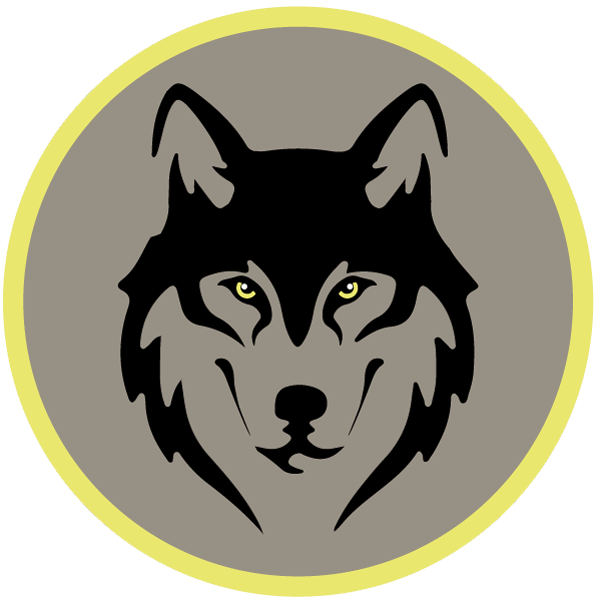F.A.Q.
In these last years, we have been asked several questions about the breed, so we thought of building up a small FAQ section to answer all of your curiosities and doubts.
How is a Czechoslovakian wolfdog’s temperament?
He is a quite stubborn dog with a very strong temperament and great energy.
Loyal to his owner, resistant to fatigue, very quick learner, does not really like routine.
The Czechoslovakian wolfdog is a medium size dog and he is part of Group 1 (sheepdogs and cattledogs).
He needs continuous inputs and good socialization.
He is extremely smart, very active and needs many attentions.
He does not like being left alone for too many hours and starts destroying things when he gets too anxious.
This is why we strongly suggest to use a kennel so he can feel safe and secure.
Czechoslovakian wolfdogs tend to escape from low fences so they need an area with a properly delimitated enclosure.
They need to develop an interactive experience with their owners and all the members of their families.
If well managed since young age they adapt pretty easily to live in an apartment.
Keeping them in a garden does not necessarily mean making them happy as they need to share as much time as possible with their families.
They like outdoor activities like hiking, trekking, swimming and any type of activity with their owners.
They have a very high predatory instinct so we highly suggest to always keeping them on a leash when out and only letting them free in fenced areas or if perfectly trained.
They have a dominant temperament especially with same-sex dogs or other animals, like cats.
We strongly suggest to start training them since they are puppies.
How long does a Czechoslovakian wolfdog live?
The average life of this breed might vary but it usually goes from 12 to 15 years, with some exceptions of some subjects that got to 18 years old.
What does a Czechoslovakian wolfdog puppy eat?
When we deliver our puppies to their new families, they are used to eat 3 times a day, for a total amount of 500g (this dose increases with growth).
Their ideal diet consists of good quality dry food (Acana, Orijen, Primordial, Monge, Royal Canin…), around 50gr per meal, mixed with grounded raw meat (chicken, turkey), 130gr. Meat should be frozen for 3-4 days before serving. Bones should be served raw, not cooked and usually mixed with grounded meat or dry food.
Their ideal diet consists of good quality dry food (Acana, Orijen, Primordial, Monge, Royal Canin…), around 50gr per meal, mixed with grounded raw meat (chicken, turkey), 130gr. Meat should be frozen for 3-4 days before serving. Bones should be served raw, not cooked and usually mixed with grounded meat or dry food.
How much does a Czechoslovakian wolfdog cost?
The average price of a puppy might vary but it usually takes into account all the meticulous work of the breeder.
More importantly it depends on the importance and uniqueness of the blood lines of the parents as well as their titles in dog shows.
We strongly suggest to speak to a serious and experienced breeder who will follow the new owners after the adoption to support them in every step of the puppy’s life.
Having a point person to count on when needed it is fundamental to properly manage any potential issue.
Buying a puppy for a cheaper price it is not the right way to find the dog that will be part of your life for a very long time.
WHAT ARE MOST COMMON DESEASES OF A CZECHOSLOVAKIAN WOLFDOG?
It is a quite resistant and strong breed but given its ancestry from the German Shepherd it also inherited several genetic defects like dysplasia, heart diseases and malabsorption issues.
Before making a Czechoslovakian wolfdog reproduce we strongly suggest to run all the needed genetic and health tests.
DOES A CZECHOSLOVAKIAN WOLFDOG TOLERATE THE HEAT?
During summer season, when temperature rises to 30-35 degrees we suggest to always keep the dog in a shaded ventilated area, ideally with fresh water at disposal.
DOES A CZECHOSLOVAKIAN WOLFDOG ESCAPE FENCES?
Yes they do, especially when enclosures are lower than 2mt without a proper anti climbing fences.
Enclosures made of walls are usually extremely hard to climb, but don’t forget impossible is nothing for a Czechoslovakian wolfdog.
IS CZECHOSLOVAKIAN WOLFDOG AN AGGRESSIVE DOG?
If well socialized and properly trained, a Czechoslovakian wolfdog is definitely not more challenging or difficult than any other breed.
